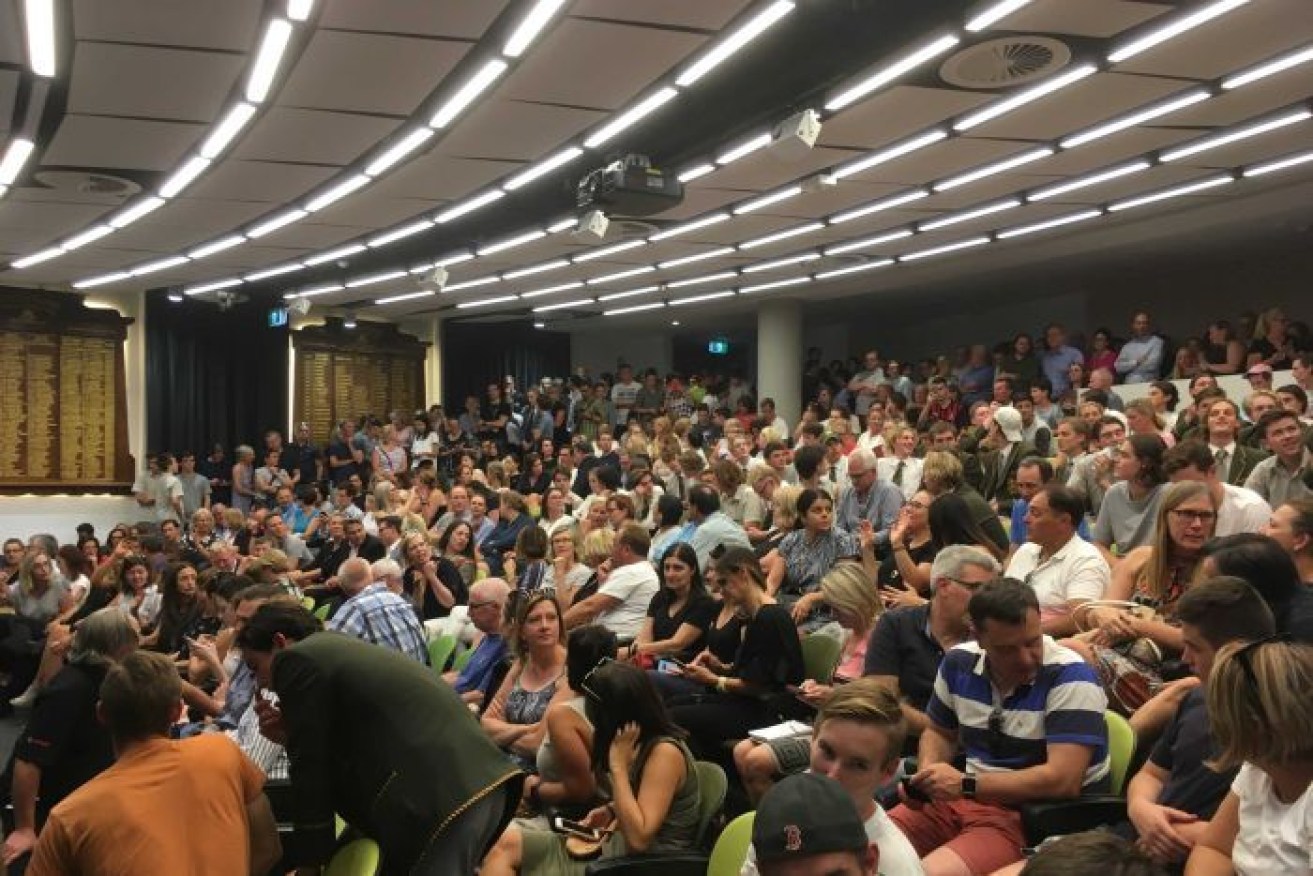Turmoil at Trinity Grammar raises questions for all private schools

More than 800 parents and former students at a meeting at Trinity. Photo: Supplied/ABC
Private schools around Australia will be watching, with interest – even alarm – the extraordinary turmoil impacting Melbourne’s Trinity Grammar, sparked by the sacking of much loved and long-standing teacher and deputy head Rohan Brown.
Other schools will be watching developments in the saga for three key reasons: the speed with which events have unfolded; the massive reputational impact the issue has had on Trinity; and the damage done to key relationships important to the future of the school.
In what can only be described as a ‘shambles of governance’ at the school over more than 10 days, we see reflected, at the very least, a total failure of those in a position of leadership at Trinity to listen, take soundings and to weigh the likely consequences of their actions.
As student and wider school community antipathy became louder and louder, the relatively new chair of the school’s council, Roderick Lyle, resigned along with two of his other directors.
It seems probable that more directors will depart in the coming days and weeks. Students – current and former – are also up in arms over what they perceive as appalling and unjust decision-making at the senior levels of the school.

Deputy head Rohan Brown was a popular figure. Photo: Trinity Grammar
How can this shambles be explained? It has a lot to do with a failure to listen and a failure to consult.
Schools are notoriously poor at consulting their own stakeholders while, at the same time, being notoriously good at extracting money from parents and past students to pay for future plans and projects.
The fact that this appears to be among the issues impacting Trinity does not mean that Trinity is the only school which does not understand its own community.
Many schools simply don’t bother asking their own communities what their views are, what they want, or whether the timing is right for this or that.
The implication being: ‘We are not much interested in your views.’
Schools – public and private – frequently misread or don’t bother ‘reading’ their own communities.
Listening and consulting require hard work. Time and resources are a pre-requisite to do both well. Any teaching institution which fails to listen and consult in the 21st century deserves the adverse stakeholder reaction which will most certainly come their way.
Schools would do well to remember that parents and students are – by another name – customers. Like customers everywhere, they have choices. Choices with both their decisions and their wallets.
For these institutions, reputation is everything. People enjoy associating with institutions held in high regard. Conversely, they will turn their backs on institutions that appear incapable of managing their reputations.
Just as young people everywhere are becoming less interested in ‘membership-based’ organisations, so too are they less inclined to stay loyal to a school merely because their mother or father went there.
Schools, unlike virtually any other organisation, have in their immediate orbit, the very people who understand connectivity, communication and consultation better than any age group before them.
Why the principals and boards of schools, are apparently so reluctant to engage, understand and learn from their own students (and parents and former students) is one of the mysteries of the 21st century.
Those schools that don’t lift their game, and learn to listen, may well find the option to do so is removed from them.
They probably won’t exist.
John Simpson is a former member of council at Scotch College and a member of council at Monash University.








